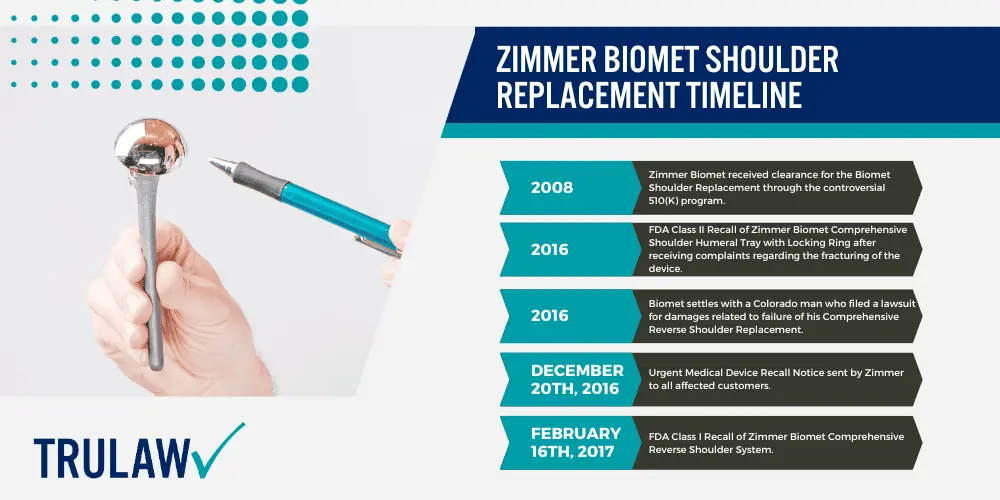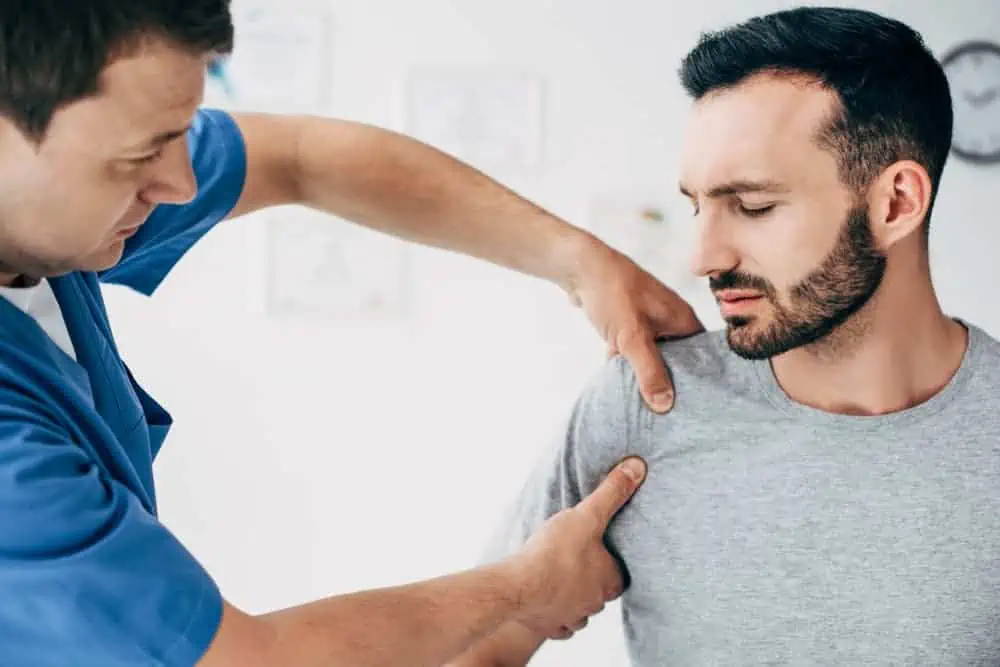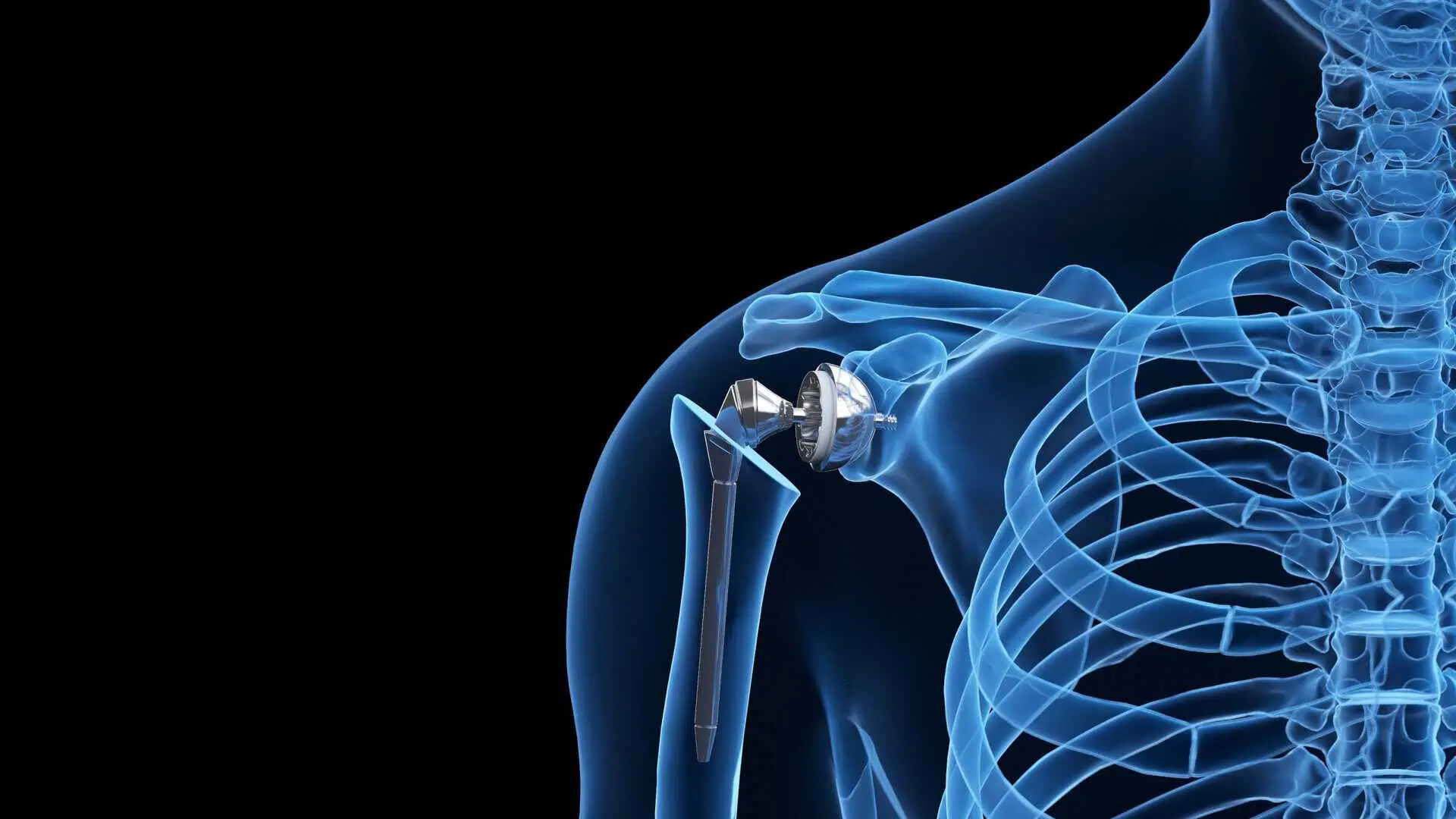Zimmer Biomet Reverse Shoulder Lawsuits
- Last Updated: July 14th, 2025

Attorney Jessica Paluch-Hoerman, founder of TruLaw, has over 28 years of experience as a personal injury and mass tort attorney, and previously worked as an international tax attorney at Deloitte. Jessie collaborates with attorneys nationwide — enabling her to share reliable, up-to-date legal information with our readers.
Legally Reviewed
This article has been written and reviewed for legal accuracy and clarity by the team of writers and legal experts at TruLaw and is as accurate as possible. This content should not be taken as legal advice from an attorney. If you would like to learn more about our owner and experienced injury lawyer, Jessie Paluch, you can do so here.
Fact-Checked
TruLaw does everything possible to make sure the information in this article is up to date and accurate. If you need specific legal advice about your case, contact us by using the chat on the bottom of this page. This article should not be taken as advice from an attorney.
Overview of the Zimmer Biomet Reverse Shoulder Lawsuits
Device Recall – Biomet comprehensive reverse shoulder replacement systems have been recalled.
Shoulder Recall Lawsuits are moving forward.
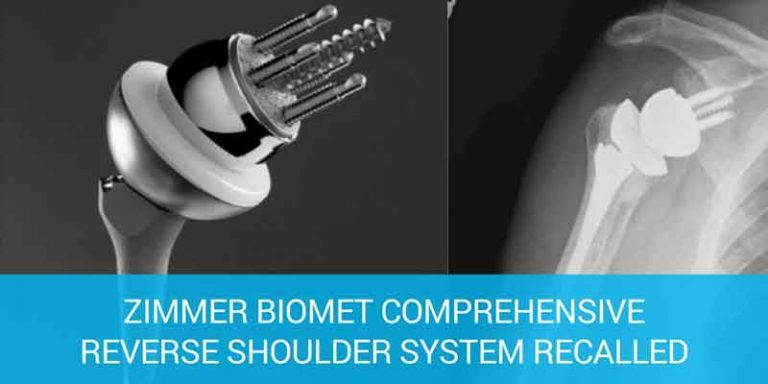
Zimmer Biomet Reverse Shoulder Injuries Lead to Recall
On December 20, 2016, Zimmer Biomet sent an Urgent Medical Device Recall Notice and a Certificate of Acknowledgement form to all affected customers.
This Notice was directed mostly toward healthcare providers in an effort to account for each of the 3,662 devices distributed between October 2008 and September 2015.
But, it is important that consumers take note of this dangerous recall.
Any individual who received a total shoulder replacement between October 2008 and December 2016, should contact their healthcare provider immediately to determine if the Recalled Zimmer Biomet Comprehensive Reverse Total Shoulder Replacement Device was utilized.
Table of Contents
What is a Reverse Shoulder Replacement Surgery?
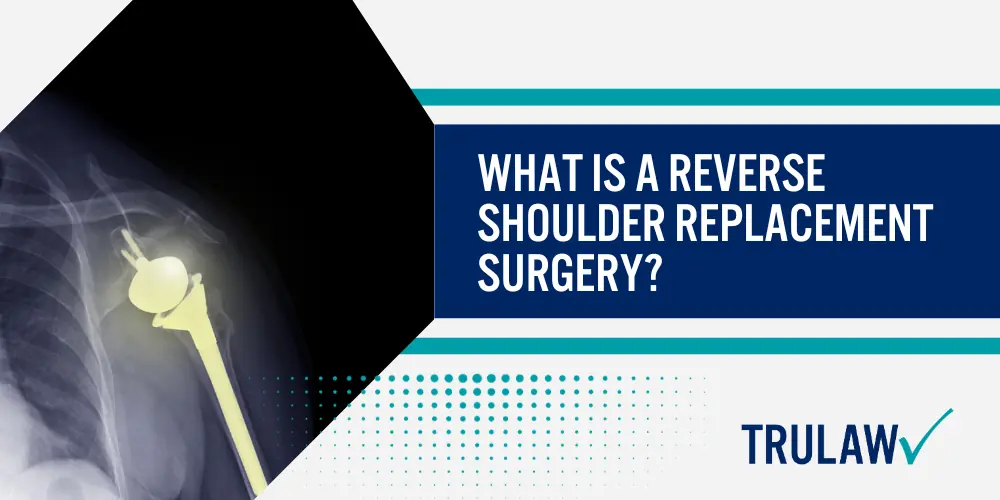
In shoulder replacement surgery, doctors replace the ends of the damaged upper arm bone (humerus) and usually the shoulder bone (scapula) or cap them with artificial surfaces lined with plastic or metal and plastic.
Reverse shoulder replacement surgery is a newer procedure used on people who have painful arthritis in their shoulder and also have damage to the muscles around the shoulder.
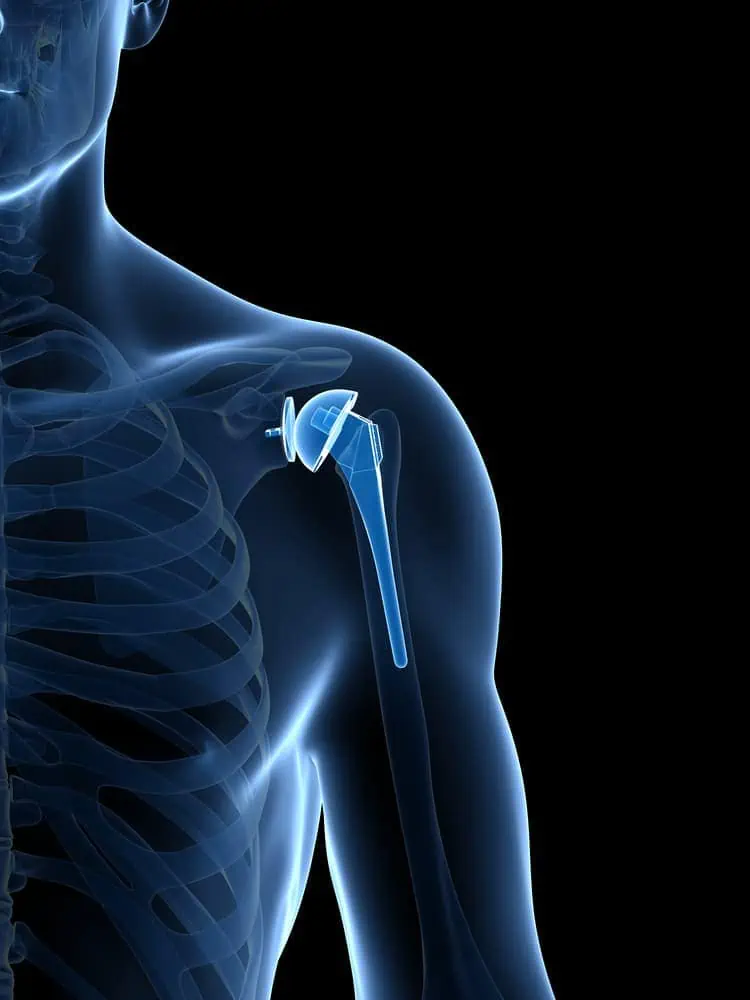
In a reverse shoulder replacement surgery, the surgeon removes the damaged bone and smooths the ends, he or she attaches the rounded joint piece to the shoulder bone and uses the cup-shaped piece to replace the top of the upper arm bone.
Zimmer Biomet Comprehensive Reverse Shoulder System
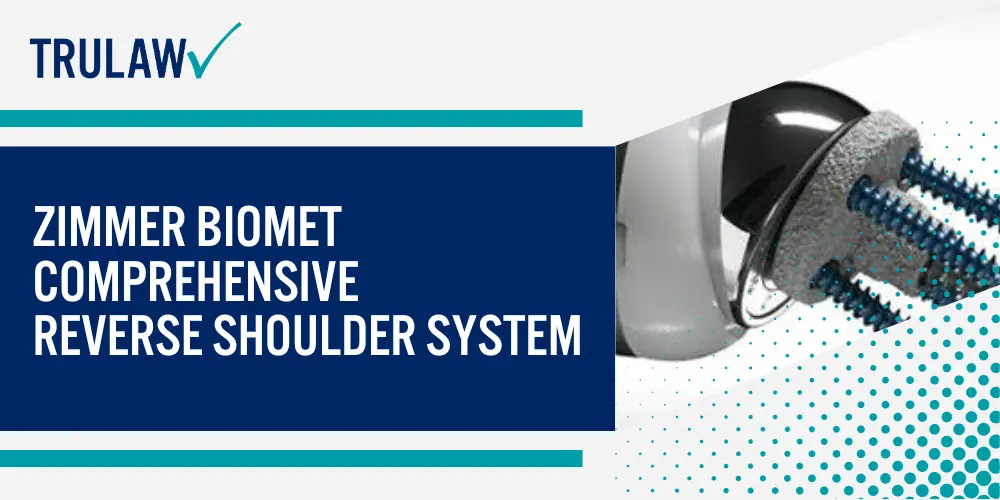
An estimated 90 percent of all shoulder replacements should last 10 years or more, so the FDA pays attention when implanted devices fail within just a few years of implantation, such as in the case of the Zimmer Biomet Comprehensive Reverse Shoulder System.
The Zimmer Biomet Shoulder Replacement was designed to restore arm movement to patients undergoing reverse shoulder replacement.
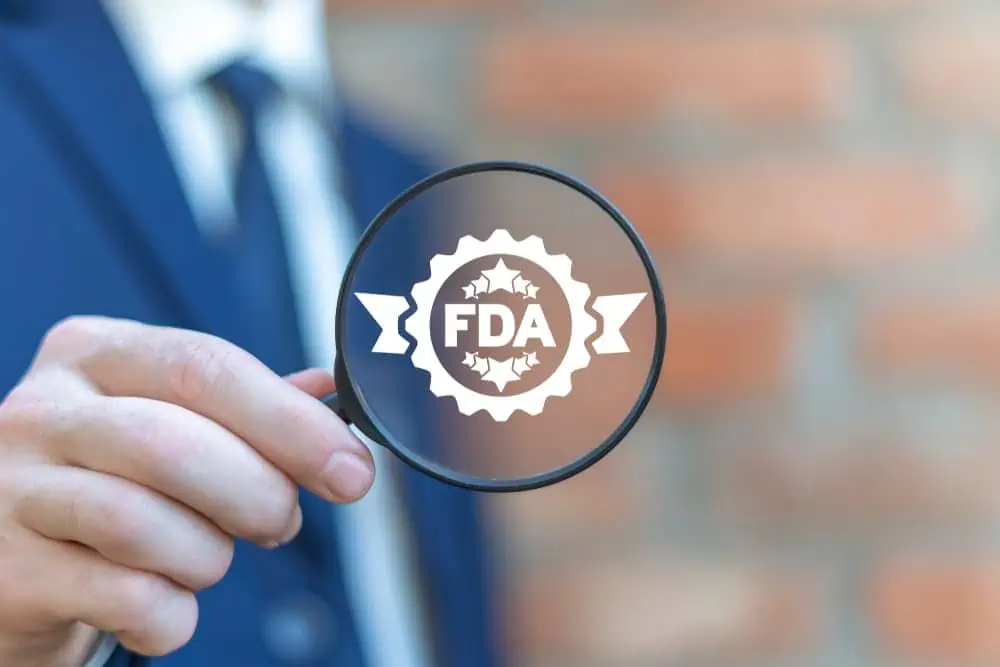
Zimmer Biomet received clearance for the Biomet Shoulder Replacement in 2008 through the controversial 510(K) program, an expedited clearance process that allows medical devices to go to market without the normal safety testing when the device maker can show that the new device is substantially similar to an already approved device.
FDA RECALL – Zimmer Biomet Reverse Shoulder Injuries lead to Recall due to a High Fracture Rate
On February 16, 2017, the FDA issued a Class 1 recall of the Zimmer Biomet Comprehensive Reverse Shoulder System.
The Class 1 recall is the most serious type of recall, reserved for devices that may cause serious injuries or death.
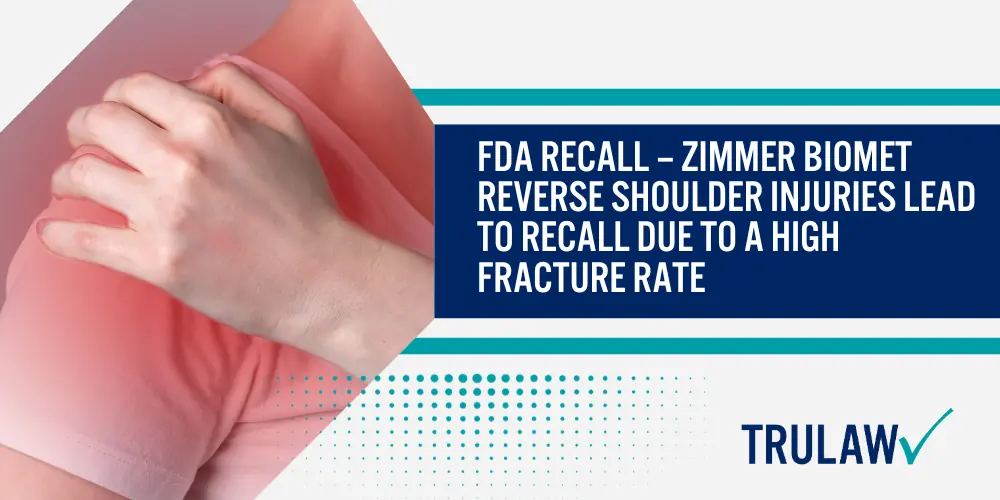
According to the FDA, the Zimmer Biomet Comprehensive Reverse Shoulder replacement devices fractures at higher rates than is stated on the label.
Fractures may result in revision surgeries which could cause serious adverse health consequences such as permanent loss of shoulder function, infection, or death.
High Fracture Rate of Zimmer Biomet Shoulder System Could Lead to Death
According to a May 2016 study of the Danish Shoulder Arthroplasty Registry between 2006 and 2012, fracture patients had a 6 times higher incidence of death within 30 days than the general population.
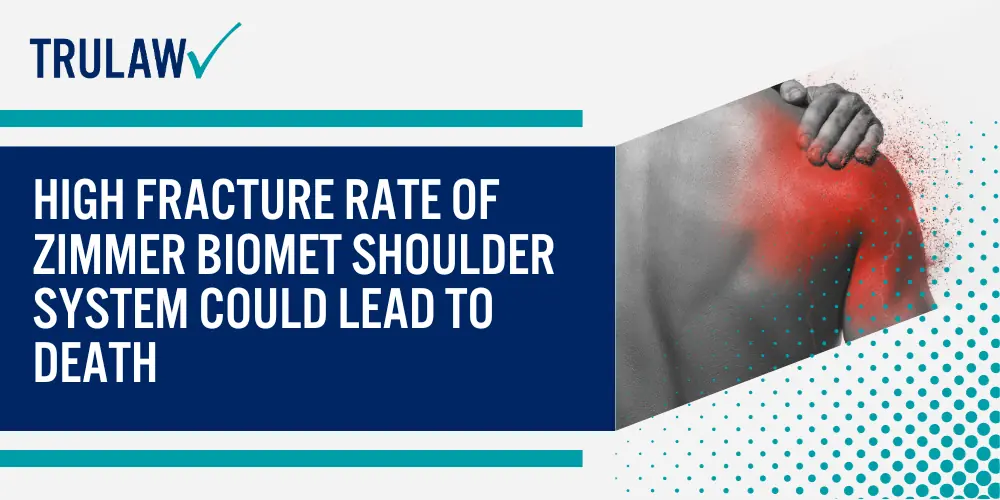
According to this study, pulmonary, cardiac, and abdominal causes of death were common.
Zimmer Biomet Shoulder Replacement Timeline
2008:
- Zimmer Biomet received clearance for the Biomet Shoulder Replacement through the controversial 510(K) program.
2010:
- FDA Class II Recall of Zimmer Biomet Comprehensive Shoulder Humeral Tray with Locking Ring after receiving complaints regarding the fracturing of the device.
2016:
- Biomet settles with a Colorado man who filed a lawsuit for damages related to failure of his Comprehensive Reverse Shoulder Replacement.
December 20th, 2016:
- Urgent Medical Device Recall Notice sent by Zimmer to all affected customers.
February 16th, 2017:
- FDA Class I Recall of Zimmer Biomet Comprehensive Reverse Shoulder System.
Zimmer Biomet Reverse Shoulder Lawsuits
Product liability lawsuits are currently being filed against Zimmer-Biomet alleging that the Comprehensive Reverse Shoulder Systems failed.
As a result of the failure, additional surgery is needed to remove and replace the allegedly defective devices.
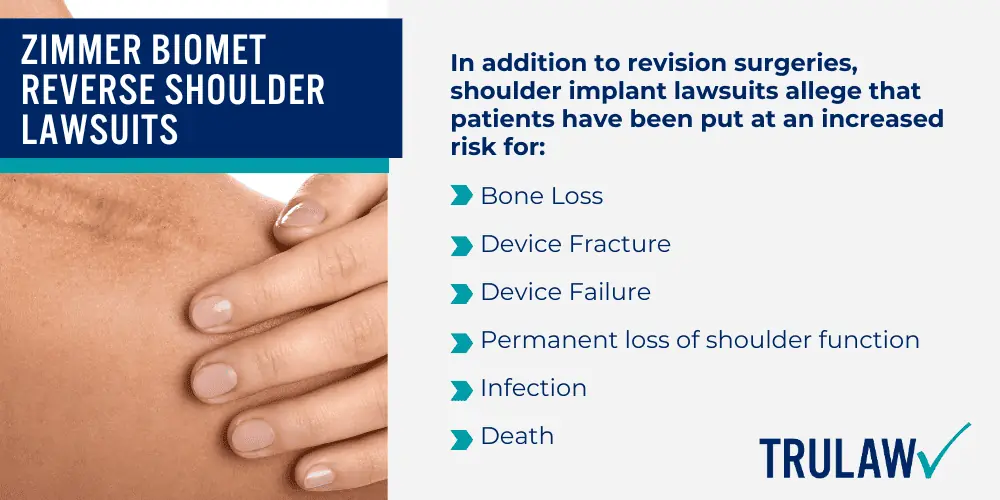
In addition to revision surgeries, shoulder implant lawsuits allege that patients have been put at an increased risk for:
- Bone Loss
- Device Fracture
- Device Failure
- Permanent loss of shoulder function
- Infection
- Death
Zimmer Biomet Reverse Shoulder Lawsuits Frequently Asked Questions
-
In 2016, Biomet Inc. agreed to pay $350,000 to a Colorado man who claimed to experience the failure of two Comprehensive Reverse Shoulder Replacements due to the component that the company had recalled in 2010.

According to court documents, the plaintiff underwent a left reverse shoulder replacement with Biomet’s Comprehensive Reverse Shoulder in September 2009, and the same device was implanted in his right shoulder in 2010.
But within just a few years of implantation, both shoulders failed at the joint between the trunnion and the baseplate, causing the patient to experience pain, loss of function, and the necessity for revision surgery to remove and replace both devices.
-
A shoulder replacement lawsuit may allow victims of failed shoulder replacement surgery to obtain compensation for their damages, which might include:
- Medical bills
- Lost wages
- Loss of enjoyment of life
- Pain and suffering
- Permanent injury
If you are a patient that had a Shoulder Arthroplasty and you suspect a fracture, contact your health provider immediately – close postoperative monitoring of pulmonary, cardiac, and abdominal conditions is important in fracture patients.

Managing Attorney & Owner
With over 25 years of legal experience, Jessica Paluch-Hoerman is an Illinois lawyer, a CPA, and a mother of three. She spent the first decade of her career working as an international tax attorney at Deloitte.
In 2009, Jessie co-founded her own law firm with her husband – which has scaled to over 30 employees since its conception.
In 2016, Jessie founded TruLaw, which allows her to collaborate with attorneys and legal experts across the United States on a daily basis. This hypervaluable network of experts is what enables her to share the most reliable, accurate, and up-to-date legal information with our readers!
Additional Zimmer Biomet Reverse Shoulder Lawsuits resources on our website:
Here, at TruLaw, we’re committed to helping victims get the justice they deserve.
Alongside our partner law firms, we have successfully collected over $3 Billion in verdicts and settlements on behalf of injured individuals.
Would you like our help?
At TruLaw, we fiercely combat corporations that endanger individuals’ well-being. If you’ve suffered injuries and believe these well-funded entities should be held accountable, we’re here for you.
With TruLaw, you gain access to successful and seasoned lawyers who maximize your chances of success. Our lawyers invest in you—they do not receive a dime until your lawsuit reaches a successful resolution!
AFFF Lawsuit claims are being filed against manufacturers of aqueous film-forming foam (AFFF), commonly used in firefighting.
Claims allege that companies such as 3M, DuPont, and Tyco Fire Products failed to adequately warn users about the potential dangers of AFFF exposure — including increased risks of various cancers and diseases.
Depo Provera Lawsuit claims are being filed by individuals who allege they developed meningioma (a type of brain tumor) after receiving Depo-Provera birth control injections.
A 2024 study found that women using Depo-Provera for at least 1 year are five times more likely to develop meningioma brain tumors compared to those not using the drug.
Suboxone Tooth Decay Lawsuit claims are being filed against Indivior, the manufacturer of Suboxone, a medication used to treat opioid addiction.
Claims allege that Indivior failed to adequately warn users about the potential dangers of severe tooth decay and dental injuries associated with Suboxone’s sublingual film version.
Social Media Harm Lawsuits are being filed against social media companies for allegedly causing mental health issues in children and teens.
Claims allege that companies like Meta, Google, ByteDance, and Snap designed addictive platforms that led to anxiety, depression, and other mental health issues without adequately warning users or parents.
Transvaginal Mesh Lawsuits are being filed against manufacturers of transvaginal mesh products used to treat pelvic organ prolapse (POP) and stress urinary incontinence (SUI).
Claims allege that companies like Ethicon, C.R. Bard, and Boston Scientific failed to adequately warn about potential dangers — including erosion, pain, and infection.
Bair Hugger Warming Blanket Lawsuits involve claims against 3M — alleging their surgical warming blankets caused severe infections and complications (particularly in hip and knee replacement surgeries).
Plaintiffs claim 3M failed to warn about potential risks — despite knowing about increased risk of deep joint infections since 2011.
Baby Formula NEC Lawsuit claims are being filed against manufacturers of cow’s milk-based baby formula products.
Claims allege that companies like Abbott Laboratories (Similac) and Mead Johnson & Company (Enfamil) failed to warn about the increased risk of necrotizing enterocolitis (NEC) in premature infants.
Here, at TruLaw, we’re committed to helping victims get the justice they deserve.
Alongside our partner law firms, we have successfully collected over $3 Billion in verdicts and settlements on behalf of injured individuals.
Would you like our help?
